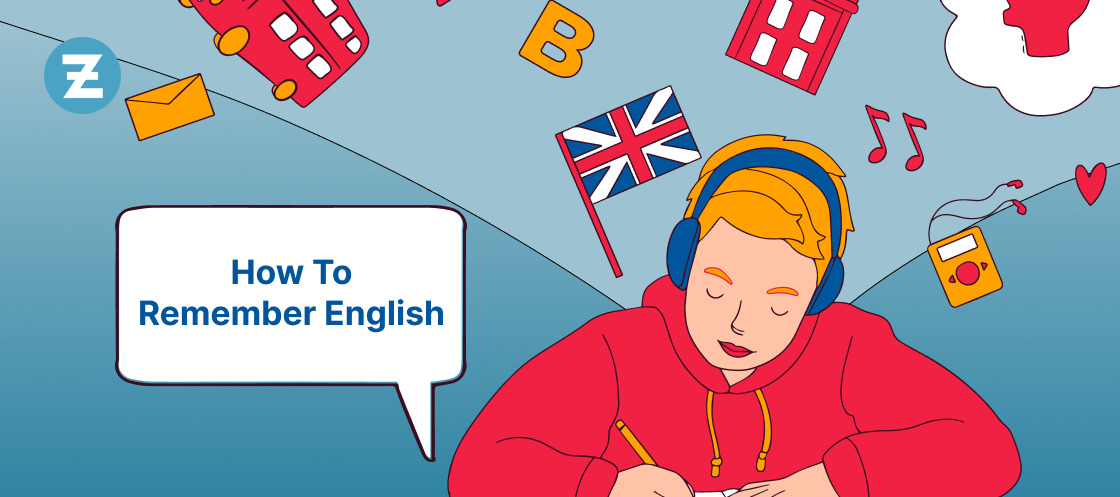Strong vocabulary is very important in English-language communication. Having a rich and varied vocabulary helps you to speak fluently, express your ideas clearly, and understand difficult texts. This blog will provide some simple suggestions to increase your English vocabulary and improve your language abilities. If you are at the beginning level or have already gained enough knowledge of the language, these steps will help you master the necessary skills and offer great tools for expanding your vocabulary. stock in English.
Step 1: Active and Extensive Reading
1.1 Books, Articles, and Newspapers
Reading broadly improves vocabulary. By reading different kinds of texts, one becomes exposed to a variety of languages that can broaden the vocabulary. To have an effective time while practicing reading, it is important that you choose the right materials for your level. Beginners may start with books or articles written in simple language, then take gradual steps to more difficult texts.
1.2 Maintaining a Vocabulary Journal
One of the best ways to interact with words that you come across when reading is by using a vocabulary journal. This entails writing down new words, their meanings, and sample sentences to give them more context. You create your own resources by noting new vocabulary for future review and revision. Revisit your vocabulary journal regularly so that you can quiz yourself on the words you have learned and use them in your day-to-day conversations.
Read also: Unique Ways to Wish a Happy Anniversary in English
Step 2: Use Contextual Clues
2.1 The Importance of Contextual Clues
Understanding unfamiliar words in context depends on contextual clues. Hints are provided by the words around them that help you understand the meaning of a word. When used in a sentence, pay attention to the other words and sentences around it and try to figure out its meaning from them.
2.2 Learning to Analyze Word Roots, Prefixes, and Suffixes
Word roots, prefixes, and suffixes are very important for the expansion of vocabulary. Many English words are derived from shared roots or affixes, which can make it easier to understand the meaning of an unfamiliar word. Understanding common prefixes and suffixes helps you determine what a new word might mean. It is also easier to comprehend or recall associated words if you can recognize their root forms.
2.3 Practicing educated guessing
Educated guessing refers to the application of information about context, word structure, and related words to understand a new word. When you come across unfamiliar words, attempt analyzing their contexts, which include looking for any prefixes and suffixes and examining any familiar words related to the unfamiliar ones. After actively practicing this strategy more often than not, you will start making correct guesses without even thinking too much about it, thereby expanding your vocabulary effortlessly.
Step 3: Vocabulary Practice through Speaking and Writing
3.1 Participating in conversations every day
Practicing vocabulary through speaking is one of the best ways to remember new words regularly. In this case, you should engage in discussions with native English speakers, those with whom you have language exchanges, or even other fellow students to try out the words taught. When you listen actively and adapt accordingly, it helps you become more familiar with the meanings of words as well as improve your general communication skills. Do not be afraid to ask others for advice because they can help you improve your language use.
3.2. Including new words in writing
One way of reinforcing your grasp and usage of words is to write while incorporating the vocabulary you have just learned. You can try to use these new terms in journals, essays, or even emails. In doing so, there is a stronger bond and relationship with words that are then easy to remember and put into practice regularly. Proofread and edit your work after writing, focusing on the vocabulary used and making it better if needed.
3.3 Using apps and resources to build vocabulary
In today’s digital era, there are numerous vocabulary-building apps and online resources that can help people learn a foreign language. These tools provide interactive exercises, flashcards, quizzes, and other activities designed to improve your vocabulary. Check out sites, applications, and language learning platforms that cater to your interests and learning style. Use technology by engaging with these resources often and including them in your vocabulary drill routine.
| Want to upgrade your English skills effortlessly?
Zoundslike is your personal coach for superior writing and speaking |
Step 4: Playing Word Games and Puzzles
4.1 Discovering word games and puzzles
Word games and puzzles are an exciting means of improving your vocabulary while having fun. They stimulate the brain, improve word recognition, and enhance one’s overall language skills. For popular examples, look at the likes of Scrabble, Bananagrams, or Boggle, which can be played online with other word games. You will find a good number of mobile apps and websites that offer different types of word challenges and puzzles that you can play on your own or with friends.
4.2 Crossword puzzles and word searches
Crossword puzzles and word searches are two of the many classic games that can boost your vocabulary. In crossword puzzles, one needs to know what words mean while spelling them out in a grid using the hints provided. Word searches, on the other hand, help one to remember vocabulary by looking for certain words that have been hidden in a grid of jumbled letters. To suit different difficulties and interests, offline and online resources provide numerous diverse crossword puzzles as well as word searches.
4.3 Word association activities
The practice of word association can help to build a more comprehensive vocabulary and is considered creative and effective. Word association involves creating links between words based on their relatedness in terms of meaning. This activity helps to develop mental linkages between words and their meanings, which eventually makes it simple to remember them and use them appropriately in verbal or written discourse. Make word association activities part of your daily language practice for better vocabulary improvement generally.
Step 5: Vocabulary in Context
5.1 Using authentic materials
In order to really understand the subtleties of vocabulary, it is essential for you to use genuine materials. Authentic materials are texts from real life, like books, articles, movies, and TV programs, that represent how native speakers use language in reality. By immersing yourself in authentic materials, you will have been exposed to a wide range of vocabulary, including idiomatic expressions used in real-life settings.
5.2 Extracting vocabulary from movies and TV shows
Movies and TV shows can be a great way to learn new words as they offer context. By actively watching, listening carefully to spoken language, reading subtitles, and using other language resources, you can develop your vocabulary while watching films or series you like. Language-learning websites that use films or series provide support on how a new language is introduced, explained, and practiced in exercises that help the learner acquire new vocabulary.
Read also: The A to Z of Space and Astronomy Vocabulary
5.3 Understanding idiomatic expressions and phrasal verbs
Phrasal verbs and idiomatic expressions are very important in the English language. In order to be good at speaking the English language, it is crucial to know its meanings. That way, you will be able to speak fluently and sound like a native speaker of English. But idiomatic expressions are just phrases that have symbolic meaning that cannot be understood by interpreting the words literally. Phrasal verbs are combinations of a verb with either a preposition or an adverb that have a specific meaning. However, knowing idioms and phrasal verbs well, while connected to contextual clues, original sources, and regular usage, gives you deeper knowledge about these units of language.
Conclusion:
In conclusion, the journey to enhance your English vocabulary becomes even more exhilarating and fulfilling with the innovative resources provided by language learning apps like ZoundsLike. Devoting time and effort to this endeavor can yield remarkable results, and incorporating ZoundsLike into your strategy can amplify your progress. Elevate your vocabulary through a multifaceted approach: immerse yourself in extensive reading, harness the power of context through guesswork, engage in meaningful conversations and writing exercises, and elevate the fun factor with word games and puzzles.
FAQs:
Q1. What if I don’t have much time for extensive reading?
If you don’t have much time for extensive reading, try to incorporate short reading sessions into your daily routine. You can opt to read articles, blog posts, or even news headlines during your commute or before bedtime. Every bit of exposure to written English helps expand your vocabulary.
Q2. Are there any mobile apps specifically designed for vocabulary building?
Yes, there are several mobile apps available that are specifically designed to aid vocabulary building. Some popular ones include Zoundslike, Memrise, and Quizlet. Explore these apps and find one that suits your learning style and preferences.
Q3. Can I rely solely on word games and puzzles for vocabulary improvement?
While word games and puzzles are beneficial for vocabulary improvement, it’s important to employ a variety of methods for optimal learning. Combine word games with reading, speaking, and writing activities to reinforce your understanding, retention, and usage of vocabulary.
Q4. What are the most effective techniques for remembering new vocabulary?
Everyone learns and retains information differently. Experiment with various techniques, such as creating flashcards, using mnemonic devices, practicing through conversation, or associating new words with vivid mental images. Discover the methods that work best for you and incorporate them into your vocabulary-learning routine.








